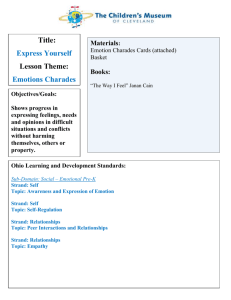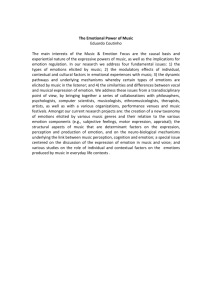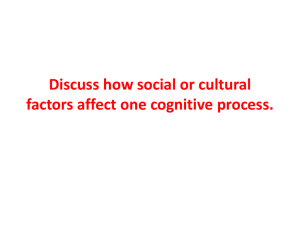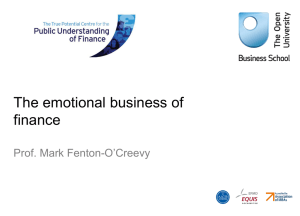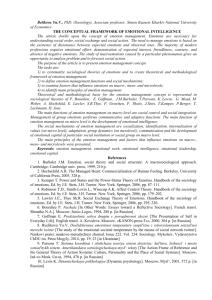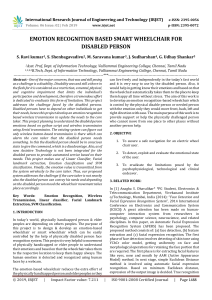Chapter 8: Supplemental Reading for Students Please check your
advertisement
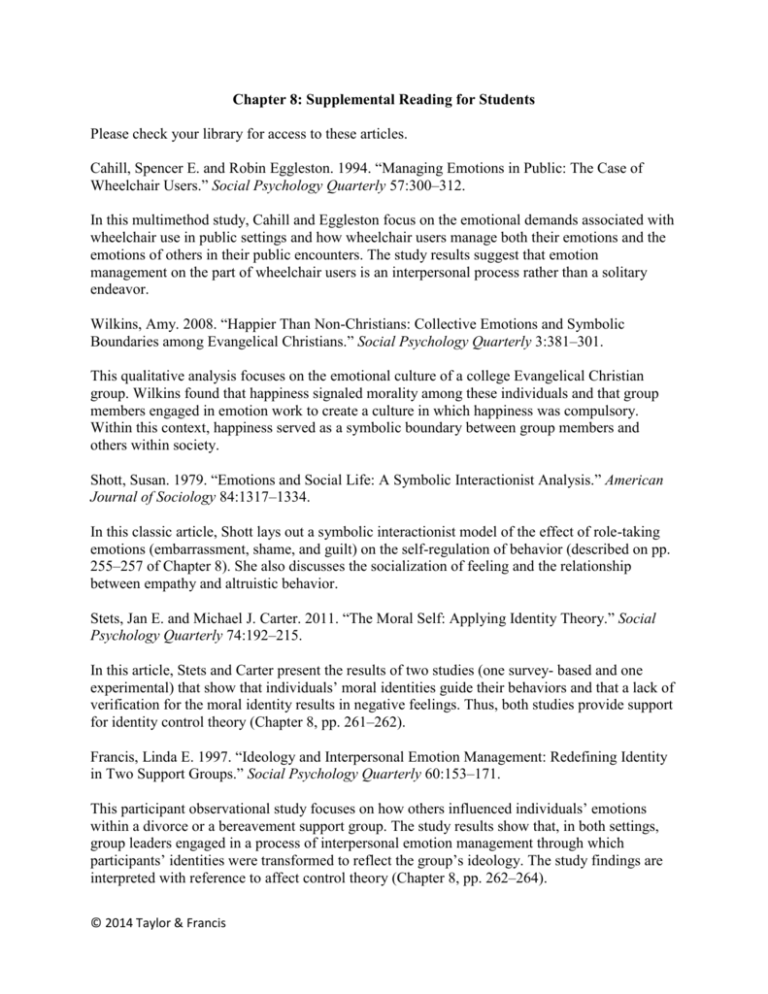
Chapter 8: Supplemental Reading for Students Please check your library for access to these articles. Cahill, Spencer E. and Robin Eggleston. 1994. “Managing Emotions in Public: The Case of Wheelchair Users.” Social Psychology Quarterly 57:300–312. In this multimethod study, Cahill and Eggleston focus on the emotional demands associated with wheelchair use in public settings and how wheelchair users manage both their emotions and the emotions of others in their public encounters. The study results suggest that emotion management on the part of wheelchair users is an interpersonal process rather than a solitary endeavor. Wilkins, Amy. 2008. “Happier Than Non-Christians: Collective Emotions and Symbolic Boundaries among Evangelical Christians.” Social Psychology Quarterly 3:381–301. This qualitative analysis focuses on the emotional culture of a college Evangelical Christian group. Wilkins found that happiness signaled morality among these individuals and that group members engaged in emotion work to create a culture in which happiness was compulsory. Within this context, happiness served as a symbolic boundary between group members and others within society. Shott, Susan. 1979. “Emotions and Social Life: A Symbolic Interactionist Analysis.” American Journal of Sociology 84:1317–1334. In this classic article, Shott lays out a symbolic interactionist model of the effect of role-taking emotions (embarrassment, shame, and guilt) on the self-regulation of behavior (described on pp. 255–257 of Chapter 8). She also discusses the socialization of feeling and the relationship between empathy and altruistic behavior. Stets, Jan E. and Michael J. Carter. 2011. “The Moral Self: Applying Identity Theory.” Social Psychology Quarterly 74:192–215. In this article, Stets and Carter present the results of two studies (one survey- based and one experimental) that show that individuals’ moral identities guide their behaviors and that a lack of verification for the moral identity results in negative feelings. Thus, both studies provide support for identity control theory (Chapter 8, pp. 261–262). Francis, Linda E. 1997. “Ideology and Interpersonal Emotion Management: Redefining Identity in Two Support Groups.” Social Psychology Quarterly 60:153–171. This participant observational study focuses on how others influenced individuals’ emotions within a divorce or a bereavement support group. The study results show that, in both settings, group leaders engaged in a process of interpersonal emotion management through which participants’ identities were transformed to reflect the group’s ideology. The study findings are interpreted with reference to affect control theory (Chapter 8, pp. 262–264). © 2014 Taylor & Francis


